- Two Thanksgiving Thoughts for the ACAPosted 11 years ago
- Shop til you Drop at the Healthcare Marketplace Part 2: Frustration!Posted 11 years ago
- An Early Casualty in the Affordable Care FightPosted 11 years ago
- Some Good News for a ChangePosted 11 years ago
A Conversation with Dan Walker
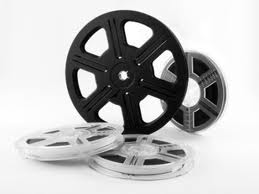
 I had a chance to sit down and talk with our new film reviewer Dan Walker this week. Here’s the transcript of that interview:
I had a chance to sit down and talk with our new film reviewer Dan Walker this week. Here’s the transcript of that interview:
TG. Dan, the Post is delighted to have you reviewing films for us. I guess the first question is where did this obvious love of film come from?
DW: I don’t think I ever thought of myself as liking movies more than most people until my 30’s and that’s only because people would comment on how much I liked them and how much I seemed to know about them. And hearing the question over and over, “Who do you think you are? Roger Ebert?” Growing up, if you asked me what my favorite pastimes were, movies would have been ranked after playing and watching sports and TV shows with my five brothers and friends and listening to popular music. I’m not sure it would have even occurred to me to include movies in that conversation.
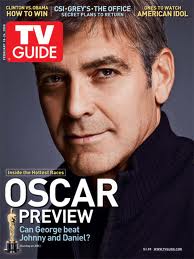 I guess if I got it from anyone, it was my parents. Like most people of my generation, we only had ABC, CBS, NBS and PBS to watch and you couldn’t record, rent or buy anything on video. Everything that came on TV had much more value than it does today so gathering around the TV in the evening was a given. We generally watched popular TV shows but my parents would let us know when a movie they liked was going to air. This was when TV Guide was vital reading. In saying that, my earliest memories were watching Ray Harryhausen movies like 1955’s “It Came from Beneath the Sea” with the giant tentacles engulfing the Golden Gate Bridge and “Jason and the Argonauts”, especially the scene where Jason had a sword fight with seven skeletons, which is still a pretty amazing visual. Other first memories are “Attack of the 50-foot Woman” and the Monroe movie, “Niagara”.
I guess if I got it from anyone, it was my parents. Like most people of my generation, we only had ABC, CBS, NBS and PBS to watch and you couldn’t record, rent or buy anything on video. Everything that came on TV had much more value than it does today so gathering around the TV in the evening was a given. We generally watched popular TV shows but my parents would let us know when a movie they liked was going to air. This was when TV Guide was vital reading. In saying that, my earliest memories were watching Ray Harryhausen movies like 1955’s “It Came from Beneath the Sea” with the giant tentacles engulfing the Golden Gate Bridge and “Jason and the Argonauts”, especially the scene where Jason had a sword fight with seven skeletons, which is still a pretty amazing visual. Other first memories are “Attack of the 50-foot Woman” and the Monroe movie, “Niagara”.
My dad liked movies like that and both my parents introduced us to movies like “Stalag 17”, “Double Indemnity” and “Sunset Blvd.” and, especially “Some Like it Hot” and they’d even mention Billy Wilder by name. My mom was a voracious reader and when a movie based on a book came out, chances are she had read it. I was always impressed by that, but not enough to do likewise. She did insist — in a good way – that I read The Good Earth, The Grapes of Wrath, The Adventures of Huckleberry Finn and The Adventures of Tom Sawyer by the time I was ten. Otherwise, I was much too hyper to read novels. It’s still hard for me to set aside time to read novels.
Just a couple of years ago, I was talking to a woman who thought she knew everything about movies. When I said that Billy Wilder was one of the best all-time directors, she said, “I don’t know who that is but I disagree”. One of the stupidest statements I’ve ever heard in a life that’s been witness to a lot of stupid statements. Between Harryhausen and Wilder, I realized the most important people in movies were the guys you didn’t see on film. Oh, both my parents really loved “The King and I”. I think Yul Brynner’s performance was as defining for me as any. So forceful and charismatic.
 Where my real movie-watching happened was on Sundays at the base theatre. My dad was in the Air Force and my parents would play bingo at the NCO club on Sundays, dropping me and my brothers off at the base movie theatre where movies cost a quarter. The movies were a cheap and effective baby sitter and my brothers and I always had a great time. Sometimes my dad would join us or take a couple of us to a matinee or evening showing on a non-bingo day.
Where my real movie-watching happened was on Sundays at the base theatre. My dad was in the Air Force and my parents would play bingo at the NCO club on Sundays, dropping me and my brothers off at the base movie theatre where movies cost a quarter. The movies were a cheap and effective baby sitter and my brothers and I always had a great time. Sometimes my dad would join us or take a couple of us to a matinee or evening showing on a non-bingo day.
One movie-watching experience I remember having with my brothers was at the Civic Center in downtown Great Falls, Montana during the winter. We watched a double-bill of “Hang ‘em High” and “101 Dalmations” repeatedly and were at the theatre all day. What a blast that was. I never understood why we weren’t kicked out. Six hyper boys are pretty conspicuous in a movie theatre, especially when they’re there for an entire day.
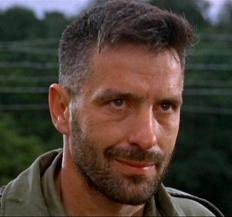 Two movies I particularly remember watching with my brothers at that theatre, and all of us absolutely loved “The Planet of the Apes” as well I should add, “Cool Hand Luke” and especially, “The Dirty Dozen”. I vividly remember John Cassavetes’s crazy, crooked smile and Jim Brown desperately sprinting, dropping grenades in all the designated spots to cap off their elaborate plan. And how reptilian Telly Savalas’ character was. Everything and everyone in that movie was just great.
Two movies I particularly remember watching with my brothers at that theatre, and all of us absolutely loved “The Planet of the Apes” as well I should add, “Cool Hand Luke” and especially, “The Dirty Dozen”. I vividly remember John Cassavetes’s crazy, crooked smile and Jim Brown desperately sprinting, dropping grenades in all the designated spots to cap off their elaborate plan. And how reptilian Telly Savalas’ character was. Everything and everyone in that movie was just great.
TG. Sounds like you all were regulars on the kiddie and action circuit. What other films really left an impression on you growing up?
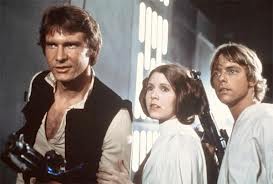 DW: Movies I remember most were “The Great Race”, “The Sound of Music”, the Sergio Leone/Clint Eastwood spaghetti westerns. “Fantastic Voyage” was another one. My dad loved James Bond, Matt Helm and “Our Man Flint” movies, so we watched those. I remember my dad taking me to watch “Woodstock” and “Mad Dogs and Englishmen”, which were pretty eye-opening, in format and content. He has a really great singing voice, which none of us inherited, and really also introduced us to great music, buying Beatles albums the moment they came out. And the Ray Harryhausen movies. I’m now inspired to watch “Jason and the Argonauts” soon. So fascinating because he was a special effects guy who got top billing over the director and everyone else. Unheard of now. I can’t name a special effects guy. Oh, Stan Winston. The first movie that probably impacted me most – and I realize I’m not original here – was “Star Wars”.
DW: Movies I remember most were “The Great Race”, “The Sound of Music”, the Sergio Leone/Clint Eastwood spaghetti westerns. “Fantastic Voyage” was another one. My dad loved James Bond, Matt Helm and “Our Man Flint” movies, so we watched those. I remember my dad taking me to watch “Woodstock” and “Mad Dogs and Englishmen”, which were pretty eye-opening, in format and content. He has a really great singing voice, which none of us inherited, and really also introduced us to great music, buying Beatles albums the moment they came out. And the Ray Harryhausen movies. I’m now inspired to watch “Jason and the Argonauts” soon. So fascinating because he was a special effects guy who got top billing over the director and everyone else. Unheard of now. I can’t name a special effects guy. Oh, Stan Winston. The first movie that probably impacted me most – and I realize I’m not original here – was “Star Wars”.
TG. Any genres you particularly love or struggle to like?
 DW: It only recently occurred to me that there really isn’t a type of movie I’m on the lookout for, other than a good one. Then I realized I especially like movies where someone’s fiction is someone else’s reality, like Marc Forster’s “Stranger than Fiction”, Woody Allen’s “The Purple Rose of Cairo”, Peter Weir’s “The Truman Show”, Wolfgang Petersen’s “The Neverending Story” and Ralph Bakshi’s “Cool World”. Robert Zemkis’ “Who Framed Roger Rabbit?” sort of fits that category so I have to include Gene Kelly’s “Invitation to the Dance” and the Jerry-the-Mouse sequence in Kelly’s “Anchor’s Away”.
DW: It only recently occurred to me that there really isn’t a type of movie I’m on the lookout for, other than a good one. Then I realized I especially like movies where someone’s fiction is someone else’s reality, like Marc Forster’s “Stranger than Fiction”, Woody Allen’s “The Purple Rose of Cairo”, Peter Weir’s “The Truman Show”, Wolfgang Petersen’s “The Neverending Story” and Ralph Bakshi’s “Cool World”. Robert Zemkis’ “Who Framed Roger Rabbit?” sort of fits that category so I have to include Gene Kelly’s “Invitation to the Dance” and the Jerry-the-Mouse sequence in Kelly’s “Anchor’s Away”.
 I’m impatient with murder mysteries. Whenever they begin, I tell myself, “The butler did it”, whether or not a butler was even in the movie. I wouldn’t watch horror movies until a few years ago, when an annoying co-worker gave me a list of 80’s horror movies to at least give the genre a try. I actually liked watching them but “Friday the 13th” and “Halloween” were just cheap suspenseful slasher movies. “Nightmare on Elm Street” really set itself apart from the others and showed me horror movies really did have something to offer. My dad and brothers watched every horror movie on TV they could. I thought they were terrible, hence my aversion as an adult. I still won’t watch a “scary movie” unless it has something unique to offer, like “Paranormal Activity” or “The Cabin in the Woods”.
I’m impatient with murder mysteries. Whenever they begin, I tell myself, “The butler did it”, whether or not a butler was even in the movie. I wouldn’t watch horror movies until a few years ago, when an annoying co-worker gave me a list of 80’s horror movies to at least give the genre a try. I actually liked watching them but “Friday the 13th” and “Halloween” were just cheap suspenseful slasher movies. “Nightmare on Elm Street” really set itself apart from the others and showed me horror movies really did have something to offer. My dad and brothers watched every horror movie on TV they could. I thought they were terrible, hence my aversion as an adult. I still won’t watch a “scary movie” unless it has something unique to offer, like “Paranormal Activity” or “The Cabin in the Woods”.
Even though the Rogers and Hammerstein movies I saw as a kid were thoroughly enjoyable, I’m suspicious of musicals now. “Chicago” was great but I couldn’t get past the first few minutes of “Evita” or “Rent”. The film version of the Broadway version of “Hairspray” was an insult to the really wonderful John Waters original, although I’m happy for John Waters’ success. Who saw THAT coming? I like Hugh Jackman and Anne Hathaway but, if I wasn’t doing movie write-ups for you, I’m not sure I’d watch “Les Miserables”. If a musical is more show-tuney than a good story, I can’t watch it. “The King and I” and “The Sound of Music” were epic productions, great stories and those guys really did write great, great songs. They set the bar too high for anyone following.
TG. How have films evolved since you began viewing them? What’s better? What’s deteriorated?
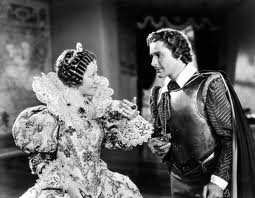 DW: They’ve obviously evolved technically and the moviemaking style is more realistic now, but they can also more manipulative and blatantly formulaic. Plus, current movies have so much more to draw from than their predecessors. Books and stage plays used to be the source material for movies. Now movies are the source material for movies, both in the form of remakes but mostly by deriving elements of older movies. At this point, everything derives from something. Look at “Kill Bill”, that whole movie, including the score and the Shaw Brothers opening logo was derivative to a shameless extreme and it was a huge rush. They didn’t just adapt the scores of older movies, they used segments of actual scores.
DW: They’ve obviously evolved technically and the moviemaking style is more realistic now, but they can also more manipulative and blatantly formulaic. Plus, current movies have so much more to draw from than their predecessors. Books and stage plays used to be the source material for movies. Now movies are the source material for movies, both in the form of remakes but mostly by deriving elements of older movies. At this point, everything derives from something. Look at “Kill Bill”, that whole movie, including the score and the Shaw Brothers opening logo was derivative to a shameless extreme and it was a huge rush. They didn’t just adapt the scores of older movies, they used segments of actual scores.
 Especially thanks to Harvey Weinstein, independent movies now have a wider audience than before he put them in theatres for us to see and they weren’t limited to art houses or college campuses anymore. Independent movies have a way of being as satisfying as big movies aren’t, although the line between studio and independent movies can be a real fine one now. Once the Oscar orgy is over, I’ll watch smaller movies people recommend and often will find those to be the ones I like best in a given year.
Especially thanks to Harvey Weinstein, independent movies now have a wider audience than before he put them in theatres for us to see and they weren’t limited to art houses or college campuses anymore. Independent movies have a way of being as satisfying as big movies aren’t, although the line between studio and independent movies can be a real fine one now. Once the Oscar orgy is over, I’ll watch smaller movies people recommend and often will find those to be the ones I like best in a given year.
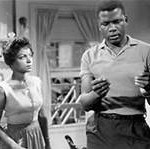 The curmudgeon in me wants to say movies aren’t as good as they used to be but that’s not true at all. I don’t think anyone making movies wants to make a bad movie. It’s not like other industries that will intentionally put out a bad, unnecessary product just for the purposes of making money. The success of a movie lies squarely in the hands of the audience. That keeps the industry honest. That’s in stark contrast to the financial services industry, which plays three-card monte with the public because we can’t all be specialists in an industry that’s intentionally complicated because it’s boring and no one wants to invest the time. We’re at their mercy, either directly or indirectly.
The curmudgeon in me wants to say movies aren’t as good as they used to be but that’s not true at all. I don’t think anyone making movies wants to make a bad movie. It’s not like other industries that will intentionally put out a bad, unnecessary product just for the purposes of making money. The success of a movie lies squarely in the hands of the audience. That keeps the industry honest. That’s in stark contrast to the financial services industry, which plays three-card monte with the public because we can’t all be specialists in an industry that’s intentionally complicated because it’s boring and no one wants to invest the time. We’re at their mercy, either directly or indirectly.
TG. Do we still have movie stars today like Clark Gable and Greta Garbo or has movie acting changed?
 DW: Those are really two different questions, Tom. Movie acting has gotten more realistic. A lot of the credit has to go to Lee Strasberg and The Actors Studio, which did for acting what Miramax did for putting out movies and Siskel & Ebert did for reviewing movies. By comparison, acting in the 30’s and 40’s seems hammy now but that’s part of the charm of those movies. There are certainly movie stars that are as high-profile but, no, the days of Gable and Garbo are gone. There’s no mystique anymore. The studios back then – especially Mayer and MGM – really worked hard at presenting their stars as having a certain image. They don’t do that any more, which is just as well.
DW: Those are really two different questions, Tom. Movie acting has gotten more realistic. A lot of the credit has to go to Lee Strasberg and The Actors Studio, which did for acting what Miramax did for putting out movies and Siskel & Ebert did for reviewing movies. By comparison, acting in the 30’s and 40’s seems hammy now but that’s part of the charm of those movies. There are certainly movie stars that are as high-profile but, no, the days of Gable and Garbo are gone. There’s no mystique anymore. The studios back then – especially Mayer and MGM – really worked hard at presenting their stars as having a certain image. They don’t do that any more, which is just as well.
It’s hard for me to even think of any current actor as a “star” in the sense as Gable and Garbo were stars. I’m not really even sure whether it’s a bad thing or not. Even if we didn’t have stars, Hollywood still has a magic pervading it. I think Clooney is the closest thing to Gable Hollywood has seen. Gable actually came across as a regular guy some other guys would want to hang around with. Clooney has a bit of that, and he seems to have fun with it, although he can also come across as smug. Every time a new Clooney movie comes out, I want to not like it – mostly because of that smugness – then he shoves it down my throat with great performance after great performance. And he makes it seem easy.
Brad Pitt and Angelina Jolie also come to mind as our generation’s movie stars. They’re both very talented and very socially conscious. They don’t need publicists to form the public’s perception of them; their acting and actions do it for them. I resent anyone who’s notoriety exceeds their talent and real contribution to movies (or whatever medium they’re in). The emphasis in getting into the personal lives of stars has become absurd and insulting to everyone. Look at this thing with Halle Berry. Awful. Even if you don’t look for that kind of “news”, it’s still in unavoidable headlines. Alec Baldwin is a wonderful actor but there seems to be a coordinated effort to tarnish him by reporting on every (bad) thing that he says and does. Who cares? I’m only interested in his work.
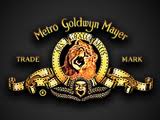 Back in older Hollywood, studio publicists – especially 30’s and 40’s MGM and Warner Brothers — really controlled how the public perceived their stars. Now nothing is off-limits. Look at what happened to Tom Cruise after he left Pat Kingsley. It’s like two completely different people. That alone shows you the value of a good and, in Pat’s case, GREAT publicist. I was lucky enough to be introduced to her at a Woody Allen screening on the Sony Lot and she couldn’t have been more friendly, warm and hilarious. That was before she parted ways with Cruise.
Back in older Hollywood, studio publicists – especially 30’s and 40’s MGM and Warner Brothers — really controlled how the public perceived their stars. Now nothing is off-limits. Look at what happened to Tom Cruise after he left Pat Kingsley. It’s like two completely different people. That alone shows you the value of a good and, in Pat’s case, GREAT publicist. I was lucky enough to be introduced to her at a Woody Allen screening on the Sony Lot and she couldn’t have been more friendly, warm and hilarious. That was before she parted ways with Cruise.
TG:. The big transformation in the past 20 years or so has been in the technology. Now you don’t need to build big sets and hire casts of thousands, you can just computerize them in. Where do you think we are in this development?
 DW: I can’t tell the difference so many times so more to the moviemakers who do it well. I’m not interested in how it’s done as I am the final product. I was watching the making of the phenomenal series “John Adams”. There was no way I could tell what I was watching wasn’t real until I saw all the blue-screening they used. I used to be more interested in learning how movie tricks happened but, more and more, I want movies to still be magic and generally won’t be interested in how effects are done.
DW: I can’t tell the difference so many times so more to the moviemakers who do it well. I’m not interested in how it’s done as I am the final product. I was watching the making of the phenomenal series “John Adams”. There was no way I could tell what I was watching wasn’t real until I saw all the blue-screening they used. I used to be more interested in learning how movie tricks happened but, more and more, I want movies to still be magic and generally won’t be interested in how effects are done.
TG. I think that magic is why movies have endured as a dominant entertainment form. Films have eclipsed theater, sadly. And they’re holding their own against video games. You’ve also worked in film distribution. Anything there you think the general public doesn’t know that they should?
 DW: Distribution is the sales department of the movie industry. They fight to get their movies placed in theatres. Sometimes they’ll get bad movies into theatres with the promise those theatres will get the good ones when they come out. Distribution is the only part of the movie industry that really hasn’t changed with time. And that’s me being nice. When you’re a moviegoer, the way a movie gets into a theatre over its competition never comes to mind. Nor should it.
DW: Distribution is the sales department of the movie industry. They fight to get their movies placed in theatres. Sometimes they’ll get bad movies into theatres with the promise those theatres will get the good ones when they come out. Distribution is the only part of the movie industry that really hasn’t changed with time. And that’s me being nice. When you’re a moviegoer, the way a movie gets into a theatre over its competition never comes to mind. Nor should it.
TG: You’ve mentioned the legendary Harvey Weinstein of the Weinstein Brothers. You worked for him. He seems to me to be the closest things we have to the Goldwyns and Mayers and Zanucks today. Did that experience influence you in any way?
DW: I didn’t realize how many Miramax movies I had seen until I interviewed there. I knew so much about the movies the guy interviewing me – and my future boss – actually stopped the session to ask if I did a lot of extensive research. I didn’t research the company at all. I just winged the interview. He liked when I said Harvey was more influential than anyone in Hollywood history with the possible exception of Louis B. Mayer. In retrospect, that’s not accurate. No one tried to be another Louis B. Mayer. They couldn’t. MGM was the General Motors of the film industry. Those other guys were important but I’m not sure they influenced anyone. Harvey’s Miramax tenure was influential because he sincerely loves movies and would put out a movie he believed in even if it was likely to lose money. He made that work. The movies Miramax put out were so consistently good it gave the company a brand-name recognition not seen since MGM in the 1950’s, hence my comparison to Mayer. The moment you saw the Miramax logo, the response was Pavlovian; you got the rush of knowing you were going to see something good and different and thoughtful. You don’t get that with any other companies, at least not to that extent. Except for maybe The Weinstein Company. Surprise, surprise.
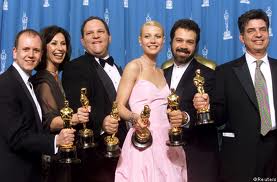 When I was at Miramax, we’d put out 35-40 movies a year, way more than other film companies, which meant the employees had to work that much harder, especially marketing, publicity and distribution. Harvey put movies out there, period. The people most influenced were the other studios, who followed suit and started their own mini-majors, like Sony Classics, Universal Focus Features and Fox Searchlight, who put out great stuff. To be honest, once I left the industry, I stopped paying much attention to what studio puts out what movie, although I’ll always root for The Weinsteins.
When I was at Miramax, we’d put out 35-40 movies a year, way more than other film companies, which meant the employees had to work that much harder, especially marketing, publicity and distribution. Harvey put movies out there, period. The people most influenced were the other studios, who followed suit and started their own mini-majors, like Sony Classics, Universal Focus Features and Fox Searchlight, who put out great stuff. To be honest, once I left the industry, I stopped paying much attention to what studio puts out what movie, although I’ll always root for The Weinsteins.
I have a thorough appreciation for what Harvey’s done and continues to do. The individuals who have been influenced by him are the filmmakers making movies they believe in and the people who finance and distribute those movies. If I was personally influenced, I would have become a producer. Enough for me to have been part of Miramax when it was an amazing place to be. I had ongoing direct interaction with Billy Bob Thornton and Anthony Minghella – both really nice and obviously talented guys — in the weeks leading up to their Oscar wins. I still can’t believe that period happened. Not to mention the enjoyment I got from working with my coworkers when I was in Operations and my boss when I was in Distribution, all of whom were very smart and very hard-working. Who wouldn’t be motivated to contribute in that environment? I fed off the energy and intensity.
During my interview at Miramax, I was asked the really great question, “What do you think of Harvey’s reputation of…” I interrupted by saying “You mean like throwing the table over at Sundance over ‘Shine’? So many allowances are made for people who contribute nothing. Allowances should really be made for people who are brilliant and/or make it their focus to allow the work of talented people to be maximized and put in front of the public.” The guy interviewing me clearly liked that answer. Even though he played Hollywood hardass throughout the interview, he had to break a smile at my response. I don’t think Harvey is egomaniacal at all. I think he’s very grounded and sincerely and passionately wants to put out a great product. He has that in common with Warren Buffett; the focus is doing things well, the side benefit is success. And neither lets his success go to his head. They’re still focused, uncomplicated, plain-speaking guys. I think Harvey’s directness in getting what he wants – again, never for his ego – is misinterpreted. Or at least it used to be. I think he’s better understood and appreciated now. Time will do that. And consistently putting out great movies.
TG: Do you read others reviews? Are there reviewers past or present you admire?
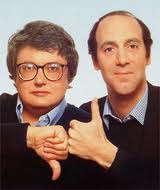 DW: I rarely read more than a summary sentence if I read anything at all. I think the first person whose reviews I regularly read in their entirety was Mick LaSalle of the San Francisco Chronicle. He just wrote good reviews and I guess he continues to do so. Now that I’m talking about it, he probably did as much as any one person in shaping the way I look at movies. I never thought about that before. I didn’t stop reading reviews for any reason other than wanting to go into a movie completely open-minded. Although, there are some movies, like “The Hours”, that make me wish I had read anything warning me how intense they are. There are some movies you can be warned about before seeing and they’re still shocking. I read several reviews on “Goodfellas” and was still numb and speechless walking out of the theatre. Me speechless is a rare phenomenon.
DW: I rarely read more than a summary sentence if I read anything at all. I think the first person whose reviews I regularly read in their entirety was Mick LaSalle of the San Francisco Chronicle. He just wrote good reviews and I guess he continues to do so. Now that I’m talking about it, he probably did as much as any one person in shaping the way I look at movies. I never thought about that before. I didn’t stop reading reviews for any reason other than wanting to go into a movie completely open-minded. Although, there are some movies, like “The Hours”, that make me wish I had read anything warning me how intense they are. There are some movies you can be warned about before seeing and they’re still shocking. I read several reviews on “Goodfellas” and was still numb and speechless walking out of the theatre. Me speechless is a rare phenomenon.
No one should ever talk about film critics without mentioning Siskel & Ebert. “Sneak Previews” revolutionized moviegoing and made it more interactive and informed. And fun. I don’t think I anticipated any show on a weekly basis back then as much as I anticipated that one. I loved when they disagreed and listening to them stating their cases. Of the two, I liked Roger Ebert more; he was more analytical and Gene Siskel seemed to be more about how he reacted emotionally. I also really liked Leonard Maltin. Rex Reed and Gene Shalit are lucky they got into it when they did. I’m sure there were other really great reviewers – like Pauline Kael at The New Yorker – but I didn’t search them out because I was satisfied with the guys I was reading/watching already.
TG: If you look back over time, many film historians say that the films of that period reflect the outlook of the country at that time. Do you agree with this thinking, and if so, what do you think the outlook being reflected by films is now?
 DW: More and more, the wide range of movies out at any given time – remembering to include independents in the equation – sort of precludes current events from really dictating the movies people make or watch. There are just so many reasons to see movies. During the depression, movies with glossy Park Avenue backdrops were popular because the times were so hard. It was necessary for people to think somewhere people were living a glamorous life. During the 1950’s, I think having WWII behind us made people feel it was OK to make goofy movies, like the Rock Hudson-Doris Day stuff.
DW: More and more, the wide range of movies out at any given time – remembering to include independents in the equation – sort of precludes current events from really dictating the movies people make or watch. There are just so many reasons to see movies. During the depression, movies with glossy Park Avenue backdrops were popular because the times were so hard. It was necessary for people to think somewhere people were living a glamorous life. During the 1950’s, I think having WWII behind us made people feel it was OK to make goofy movies, like the Rock Hudson-Doris Day stuff.
The biggest example of how the mood of the country matched what came out of theatres was the late 60’s/early 70’s. To say each was transitional would be a drastic understatement. It was a very exciting time for both the country and movies. The documentaries “Easy Riders, Raging Bulls” and “A Decade Under the Influence” are massively entertaining illustrations of what happened during that period socially, and especially with the film industry
I used to resent and be baffled by Adam Sandler’s success. As I’ve gotten older, after working in the film industry and, especially, after 9/11, I’ve become much less judgmental about movies or moviemakers whose work I didn’t like and the people who watch those movies. If it puts people in seats and makes them laugh or gives them whatever they went to the movie for, it’s a good movie.
TG. If you had to put together a top ten favorite list, what would be on it?
DW: (Groan) I will hate this question into eternity. Keep in mind, I can recognize a movie is good but still not like it, like “Moulin Rouge”, and I can like a movie I recognize as not being very good, “Valley of the Dolls” being a good example.
OK, Star Wars (the first one), the first two Godfather movies together, Goodfellas, Sunset Blvd., All About Eve, Rashomon, American Beauty, Dinner at Eight, Apocalypse Now — can all the great movies from 1939 be lumped together as number ten?
 There are probably one hundred movies that could have been in that list. Maybe two hundred. I don’t like ranking things in general anymore, although I do like looking at other people’s lists. Saying you like some movies implies you don’t like others you don’t mention. The last five on my list could easily be different if you ask me next week, or even tomorrow after having more time to think about it. I’ve already just thought of “The Best Years of Our Lives”. Or “The Great Dictator”. I don’t want to get going on this topic because we’ll be here all day.
There are probably one hundred movies that could have been in that list. Maybe two hundred. I don’t like ranking things in general anymore, although I do like looking at other people’s lists. Saying you like some movies implies you don’t like others you don’t mention. The last five on my list could easily be different if you ask me next week, or even tomorrow after having more time to think about it. I’ve already just thought of “The Best Years of Our Lives”. Or “The Great Dictator”. I don’t want to get going on this topic because we’ll be here all day.
TG. You have a very unique, passionate, direct and informal style. It’s like going to a film with a friend who loves film and talks to you like a friend. The feelings almost pour out. Where did you develop that?
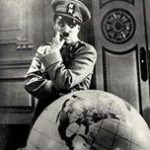 DW: Where did my style come from? Beats me. I could never analyze myself like that. It gets in the way of moving forward.
DW: Where did my style come from? Beats me. I could never analyze myself like that. It gets in the way of moving forward.
I had a colleague at Miramax tell me something similar after I was talking to her, either about a movie I had just seen or movies in general. When I told her I didn’t see my opinion as being any more valid than anyone else’s, she articulately explained how wrong I was, then walked away. I stood there with absolutely no idea how to respond. A moment I always remembered. It’s possible to be flattered and insulted at the same time.
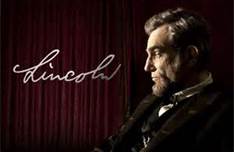 I’ve always liked engaging in conversation and always prefer when it’s with someone who knows more on a given topic than I do. I’m generally uninhibited and opinionated on topics I like and am somewhat knowledgeable about, like music or sports, although I know less about current music and current sports than I used to know. I don’t think either are as interesting as when I was growing up. Movies transcend that limitation for me.
I’ve always liked engaging in conversation and always prefer when it’s with someone who knows more on a given topic than I do. I’m generally uninhibited and opinionated on topics I like and am somewhat knowledgeable about, like music or sports, although I know less about current music and current sports than I used to know. I don’t think either are as interesting as when I was growing up. Movies transcend that limitation for me.
I like talking to people about movies because you can get spirited, enjoyable conversation without getting into each other’s personal business. I wish everyone well but I don’t need to know your stuff. Besides, you get a feel about a person by the movies they like and how they express themselves. Jaye Davidson, after getting a Best Supporting nomination for “The Crying Game” said, “Movies are a horrible medium”. He was speaking for himself and biting the hand that fed him.
 For me, movies are the ultimate medium, mostly because there are so many kinds of movies and so many reasons to see movies and so many things you can take away from movies. In saying that, a buddy of mine was talking about a movie he saw and said, “You get important life lessons from movies”. My instant reaction was to say, “No, you don’t. You get important life lessons from LIFE”. The statements are not mutually exclusive.
For me, movies are the ultimate medium, mostly because there are so many kinds of movies and so many reasons to see movies and so many things you can take away from movies. In saying that, a buddy of mine was talking about a movie he saw and said, “You get important life lessons from movies”. My instant reaction was to say, “No, you don’t. You get important life lessons from LIFE”. The statements are not mutually exclusive.
In terms of being passionate, a friend said it best when she told me, “The thing I like about you is when you like something, you REALLY like it.” She’s right; I’m like that about everything I like. When I was in my teens, I read so much about the Olympics I could have written my own book on the subject. The same with Warner Brothers and MGM animated shorts from the 40’s and 50’s. And don’t get me started on track and field or basketball and football in the 70’s, both college and pro. Or popular music between 1965 and 1995.
 I like when other people are passionate and knowledgeable about something and sincerely enjoy sharing their perspective. What I dislike is when people validate themselves by what they know, which is ultimately not as much as they think they know. No one put it as well as Akira Kurosawa, easily one of the greatest film makers of all time. In accepting his Lifetime Achievement Award at the Oscars Kurosawa said, obviously overwhelmed by the honor, “I know nothing about film”.
I like when other people are passionate and knowledgeable about something and sincerely enjoy sharing their perspective. What I dislike is when people validate themselves by what they know, which is ultimately not as much as they think they know. No one put it as well as Akira Kurosawa, easily one of the greatest film makers of all time. In accepting his Lifetime Achievement Award at the Oscars Kurosawa said, obviously overwhelmed by the honor, “I know nothing about film”.
There are a lot more movies I haven’t seen than I have seen and that — along with the movies themselves – is very exciting.
Before I left Miramax, when I’d tell my coworkers of my experiences there, the response was always “You should write a book about it. I’d read it”. Granted, I’m very energetic and animated when I share anecdotes — which helps with their presentation — but their point was well-taken. This conversation forced me to think about a lot of things I otherwise have forgotten. If I do write a book, this conversation would be its genesis.
 TG: I know the Penn Square Press is looking for good books next year. I hope you’ll keep us at the top of any list.
TG: I know the Penn Square Press is looking for good books next year. I hope you’ll keep us at the top of any list.
Thanks Dan.
(Rev. 12/2)


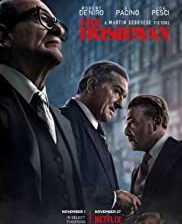

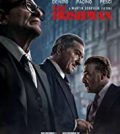
Awesome Interview!
John